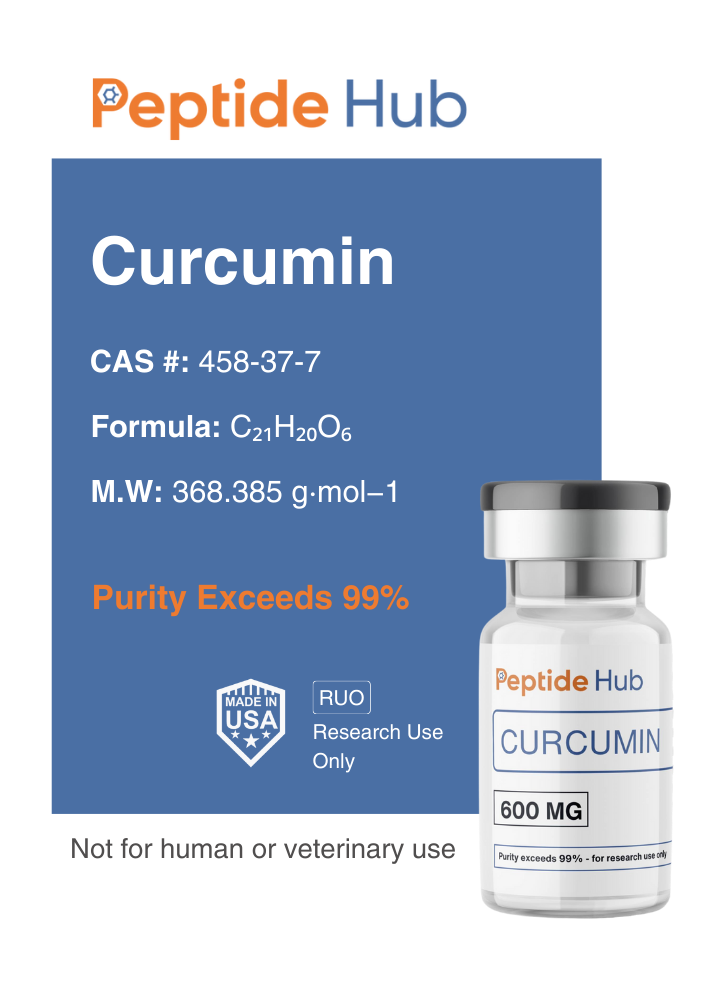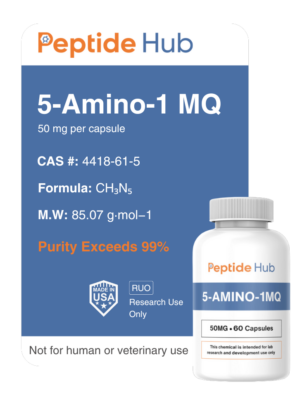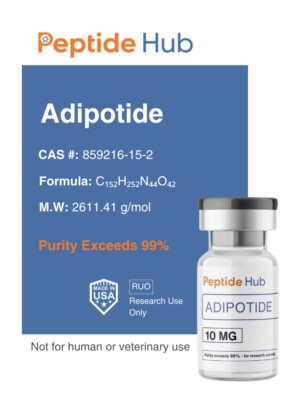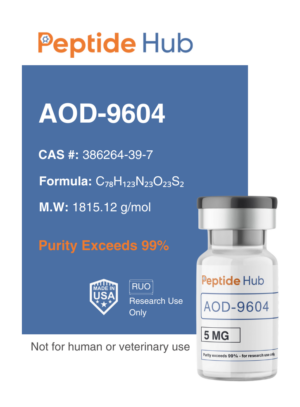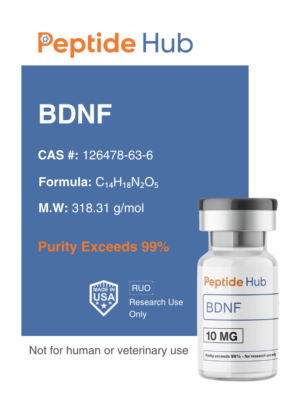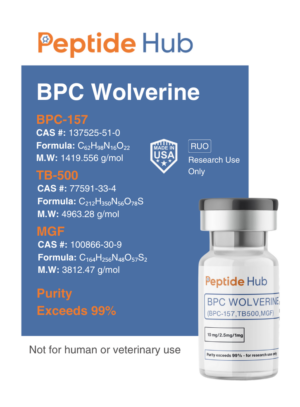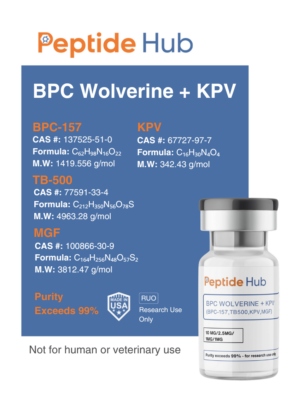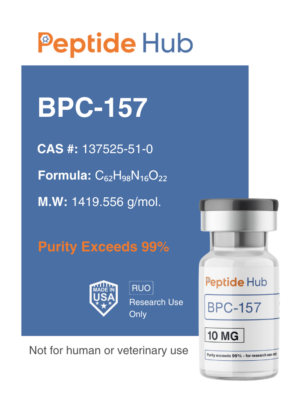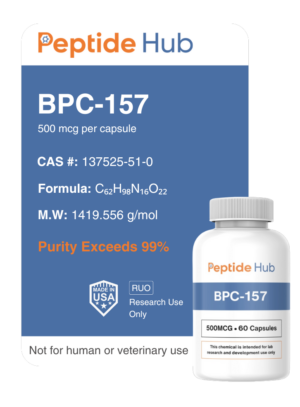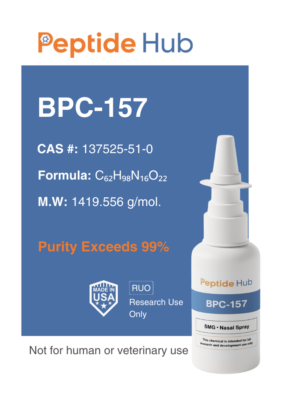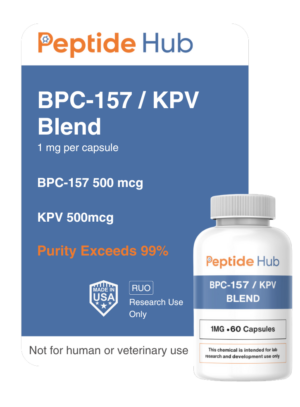Curcumin – 200mg
$200.00

99% Purity

3rd Party Tested

USA Made
Curcumin
Curcumin is the active compound found in turmeric, widely recognized for its potential antioxidant and anti-inflammatory properties. It has been extensively studied for its ability to modulate various biological pathways and its potential benefits in a wide range of research areas, including inflammation, oxidative stress, and cellular health.
Potential Research Applications
Curcumin is currently being explored in research settings for its role in:
- Inflammation Regulation: Investigated for its ability to reduce inflammation and support healthy inflammatory responses in the body.
- Antioxidant Properties: Studied for its effects in neutralizing free radicals and reducing oxidative stress.
- Cellular Health & Regeneration: Researched for its potential to promote cellular health, support tissue repair, and improve overall well-being.
- Chronic Disease Prevention: Explored for its potential benefits in mitigating the effects of various chronic conditions, such as joint health and metabolic diseases.
✔ High-Quality Research Compound – Produced under stringent quality control standards.
✔ Lab-Tested for Purity – Ensures consistency for scientific studies.
✔ Research Use Only – Not for human consumption or medical applications.
✔ Compounds – Will arrive in a lyophilized (powder) form for maximum stability.
The peptides are available for research and laboratory purposes only. Please review and ahere to our Terms and Conditions before ordering.
- Description
- Certificate of Analysis
Curcumin, a natural polyphenol from turmeric (Curcuma longa), has gained attention for its biological effects. It helps regulate inflammation and oxidative stress by affecting cytokines, transcription factors, and enzymes that maintain cellular balance. Since the body absorbs curcumin poorly, researchers are creating new formulations to improve its effectiveness in experiments.
Studies show that curcumin controls inflammation through pathways like NF-κB and COX-2. It also acts as an antioxidant by neutralizing free radicals and increasing protective enzymes such as superoxide dismutase (SOD) and glutathione peroxidase. These actions help protect cells and support balance.
Researchers are also studying curcumin’s effects on metabolism, especially its role in lipid processing and insulin activity. It may activate AMPK and influence fat cell development, showing potential for metabolic regulation. Additionally, scientists examine its impact on mitochondria, energy production, and ATP levels.
Because curcumin dissolves poorly and breaks down quickly, scientists are designing better delivery methods, including nanoparticles, liposomes, and conjugates. These approaches improve absorption and make curcumin more useful in research. Studies continue to explore its molecular effects and possible applications.
For Research Use Only
No Certificate of Analysis images available for this product.

